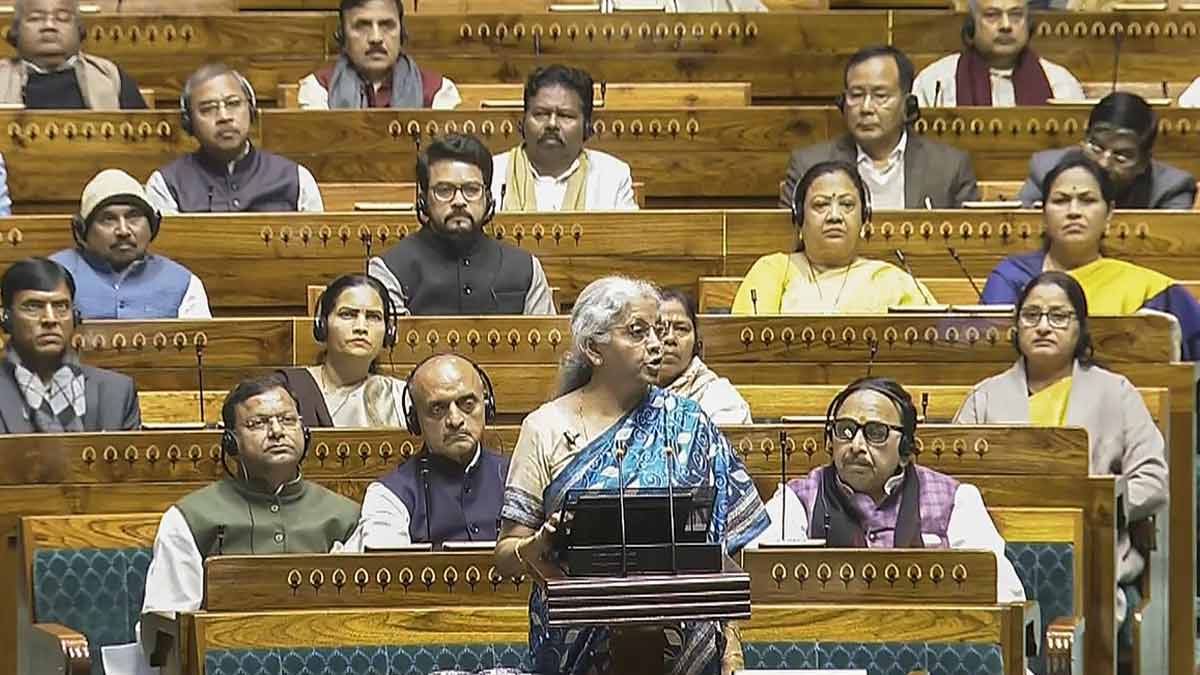
In a significant move to combat cervical cancer, Finance Minister Nirmala Sitharaman, in the interim budget speech, announced the active promotion of HPV vaccination for girls aged 9 to 14. Cervical cancer, fueled by the Human Papillomavirus (HPV), poses a considerable health risk, making this initiative crucial. Here's a closer look at the importance of the HPV vaccine, its recommended recipients, its effectiveness, and the broader strategy to address this prevalent health concern.
Table of Content:-
Understanding the Significance of the HPV Vaccine
Cervical cancer ranks as the second most common cancer among women in India, attributing a substantial burden to global cervical cancer cases. The primary culprit behind this alarming statistic is the Human Papillomavirus (HPV). Despite efforts to implement nationwide cancer screening programs, low awareness and limited access to vaccination programs contribute to the persistent prevalence of HPV. The government's commitment to actively promote vaccination for girls aged 9 to 14 marks a pivotal step in the battle against cervical cancer.

Why is the HPV Vaccine Crucial?
Genital HPV, a virus transmitted through sexual activity, affects a significant portion of the population. While most HPV infections resolve on their own without symptoms, certain types can lead to severe health issues, including cervical cancer. The vaccine primarily targets the HPV types responsible for cervical cancer and other related cancers, offering protection against the most common health problems associated with them.
Also Read: Cervical Cancer Awareness Month: Specific Cervical Health Concerns At Different Life Stages
Recommended Recipients for HPV Vaccination
HPV vaccination is seriously recommended for 11 and 12-year-old girls. Additionally, girls and women aged 13 to 26 who haven't been vaccinated or completed the series are eligible. The vaccine can even be administered to girls as young as 9 years old. Two doses for 11 to 12-year-olds are also emphasized to effectively guard against HPV-related cancers.
Effectiveness of the HPV Vaccine
The HPV vaccine's effectiveness lies in its ability to prevent the targeted HPV types and associated health problems. It is particularly potent in individuals who haven't been exposed to HPV before vaccination. While the vaccine doesn't treat existing HPV infections or associated diseases, research indicates its long-lasting protection, with studies spanning up to ten years showing consistent efficacy.
Also Read: Cervical Cancer Awareness Month: Understanding HPV Negative Cervical Cancer
What the Vaccine Doesn't Protect Against
It's crucial to note that the HPV vaccine doesn't provide immunity against all HPV types responsible for cervical cancer. Hence, regular cervical cancer screenings remain essential for early detection. Additionally, the vaccine doesn't safeguard against other sexually transmitted infections (STIs), necessitating continued efforts to reduce overall STI risk.
Is HPV Vaccination Important for Males?
Recognizing the importance of broader immunization, the HPV vaccine is licensed for use in boys and men aged 9 to 26. Routine vaccination for boys at age 11 or 12 is recommended, with flexibility for initiation as early as 9 years old. Males aged 13 to 21 who haven't received vaccination or completed the series are also encouraged to get vaccinated. While the vaccine is most effective at younger ages, males aged 22 to 26 can still benefit from the immunization.
Conclusion: A Strategic Step Towards Cervical Cancer Prevention
The government's focus on promoting HPV vaccination, especially among girls aged 9 to 14, reflects a strategic approach to curb cervical cancer. By addressing the root cause and expanding vaccination efforts, there's potential for a significant reduction in the prevalence of HPV-related health issues. This budgetary commitment aligns with a broader health agenda, emphasizing prevention as a cornerstone for a healthier nation.
Also watch this video
How we keep this article up to date:
We work with experts and keep a close eye on the latest in health and wellness. Whenever there is a new research or helpful information, we update our articles with accurate and useful advice.
Current Version